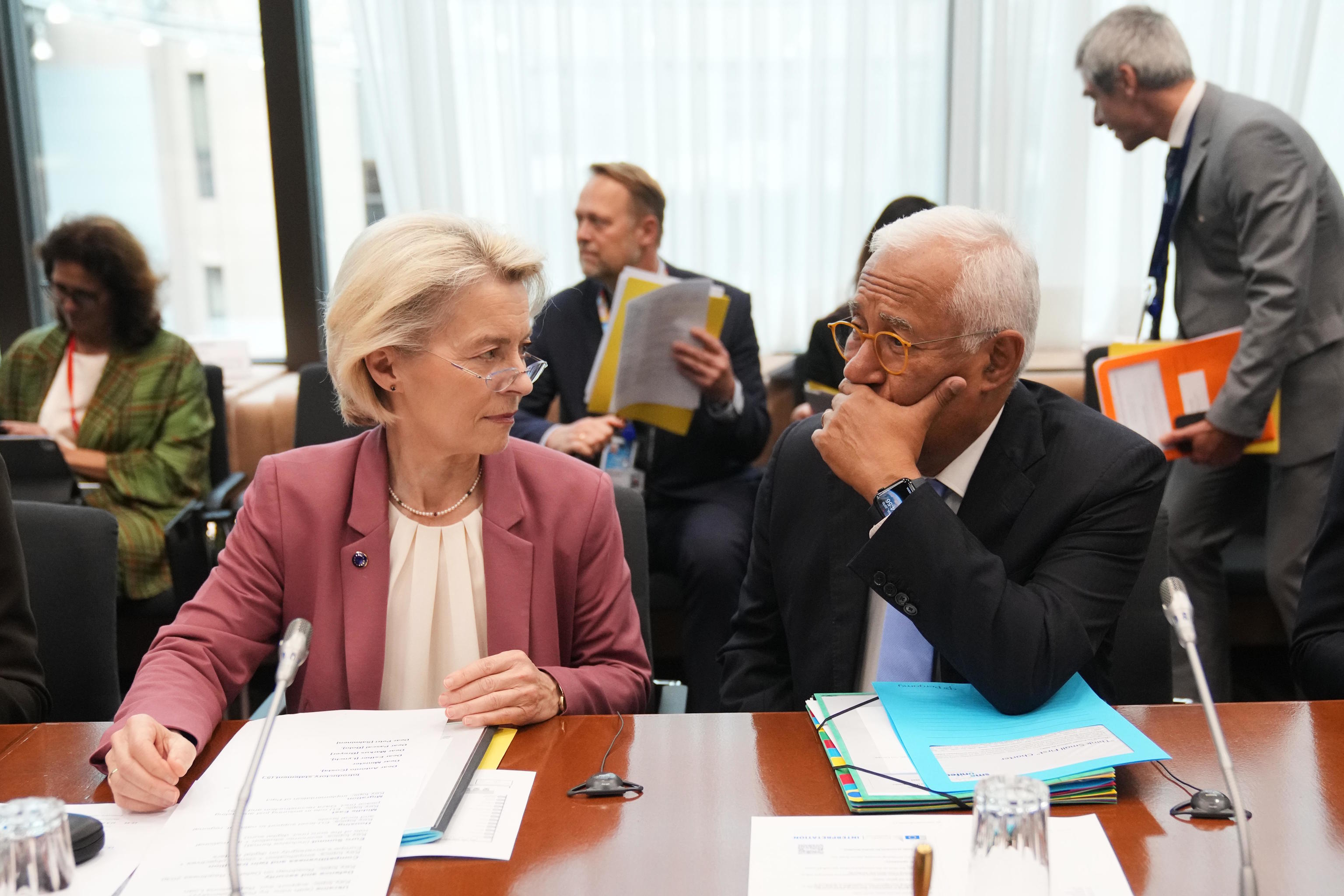"We have to build a system that allows Ukraine to stay in the fight over the next few years and alleviate its budgetary needs. And if you look at the IMF figures, what is clear is that they will need between 114,000 and 160,000 million euros in the next three years". European diplomatic sources explain in this way the hefty bill of supporting Volodymyr Zelensky against Vladimir Putin and, consequently, protecting Europe from Russia. Because one thing is clear in Brussels, the Ukrainian country is the first line of European defense.
Faced with this immense need for liquidity, one of the main points to be discussed this Thursday at the European Union leaders' summit in Brussels is how to proceed with the frozen Russian assets. At Euroclear, a financial securities clearing and settlement company based precisely in Brussels, 175,000 million in cash is accumulated, a figure that the European Commission estimates will reach 185,000 million in the coming years. This amount would finance Ukraine's needs and prevent taxpayers from bearing the bill through their taxes, something no president wants.
Everyone claims to be in favor of it, but the Prime Minister of Belgium, Bart de Wever, has expressed significant doubts about what he calls a "confiscation" of Russian money. He fears that Putin may retaliate against his country, given that Euroclear's headquarters are in Belgium, and that he may sue them in international courts as well as target Belgian companies with which he has commercial relations.
The European Central Bank (ECB) has also shown reluctance towards the plan presented by the President of the European Commission. Ursula von der Leyen proposed that the best way to do it is by articulating a sort of credit for Ukraine, channeled through the ECB itself, and conditioned on the country repaying it once Russia takes care of paying for the reconstruction expenses after the war. Therefore, in Brussels, it is referred to as a loan for reconstruction, but the form does not seem to convince the European regulator too much.
"There are several points to resolve. The first is the nature of the guarantees that the Member States must provide and how they can be backed, for example, with the EU budget margin," continue diplomatic sources. This means "guarantees" that provide more security to the operation and dispel the doubts that the ECB and Belgium may have, which has also requested a "mutualization" of the risk.
"Second, risk assessment, especially liability risks. For example, Belgium has an investment treaty with Russia. What happens if Russia initiates a procedure? We are talking about 184,000 million, 27% of Belgium's GDP. And then we have to decide how the money will be used," these same sources continue regarding what to buy and what not. Von der Leyen's proposed plan includes prioritizing the purchase of European military equipment, but Europe's industry capacity is limited.
"Ukraine can manufacture or buy drones in Europe, but there is equipment that Europe cannot produce quickly, so we must maintain open and not overly protectionist criteria," adds a diplomat. Therefore, it is not expected that a consensus solution will emerge from this European Council, something that is essential since the Commission has stated that until there is "political agreement," no steps will be taken.
Brussels' goal is for the money to start reaching Ukraine in the second quarter of 2026, that is, next April. And for that, it seems like there is still a long time, but in reality, it is less than six months and that, considering European rhythms and speeds, is not exactly too much time.
New sanctions targeting the ghost fleet of tankers
The EU has agreed on a new package of sanctions against Russia targeting its ghost fleet of tankers and banning imports of liquefied natural gas, announced the Danish presidency of the bloc.
"Today is a good day for Europe and Ukraine," said Danish Foreign Minister Lars Løkke Rasmussen in a statement while EU leaders were participating in a summit in Brussels, reports Ap.
The new sanctions "will introduce new and comprehensive measures on oil and gas, the ghost fleet, and Russia's financial sector," he added.
The measure comes a day after the United States government announced new sanctions against Russia's oil industry, aiming to bring Russian President Vladimir Putin to the negotiating table to end his war in Ukraine.
